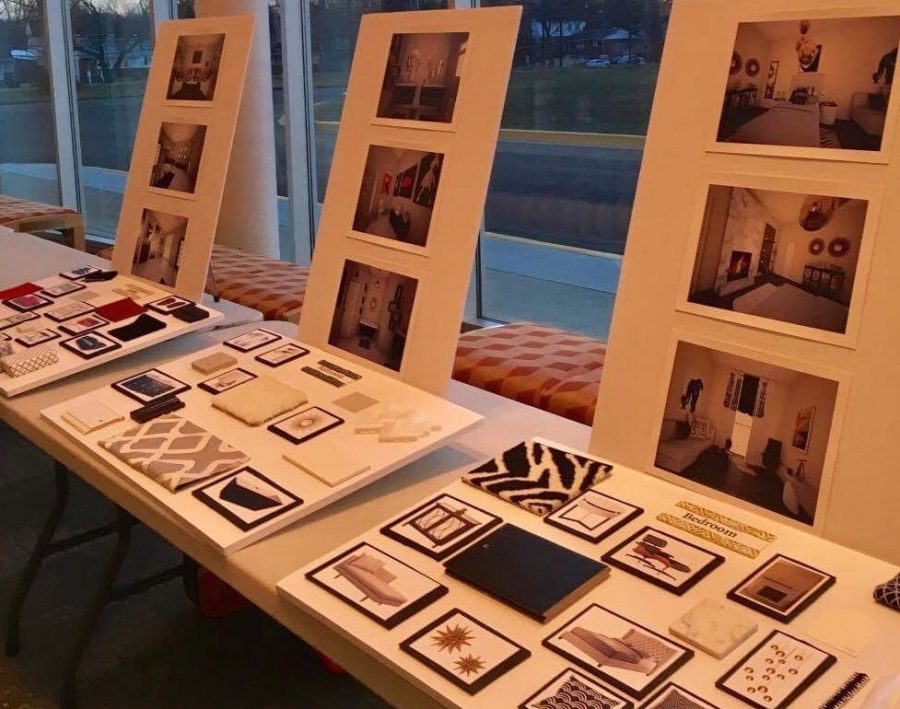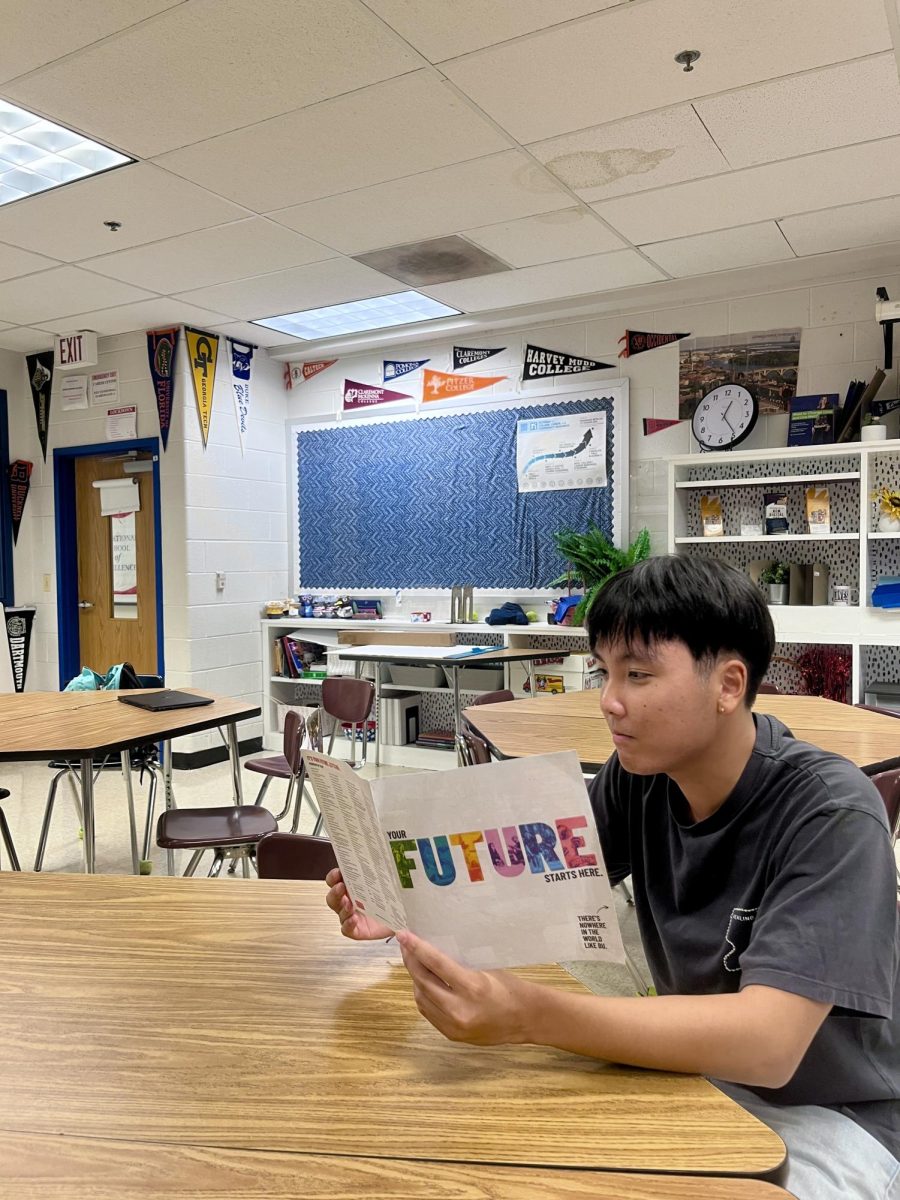The Dimmed City of Lights: An Analysis of Parisian Tourism in a Post Terriost State
When the Paris terror attacks happened in Nov,13 senior Micaela Pacheco felt emotionally distraught because she considered herself a francophile. She wrote her senior independent projects on these attacks and the effects that they had on the French people and tourism in the Paris area.
Pacheco enjoys France and the French culture so she believed that writing about what happened in Paris would be the topic for her. She chose the topic because she considered herself a francophile and she was emotionally affected when the attacks happened. Pacheco’s interest in the attacks came from her admiration of the French culture and people made her choose this topic to write her independent project on. “I have always been a francophile and was really hit when the attacks happened,” Pacheco said.
While Pacheco had already had knowledge on France and its customs, working on the independent project helped enrich what she knew about the attacks in France. “It helped me see how these kind of attacks happen and why they keep occurring in places like France,” Pacheco said.
Since Pacheco’s topic dealt with issues that are tough to talk about, she still made it an educationally valuable experience because of all the new information that she absorbed. “My favorite part was having my interview with a leader in the field of tourism Dr. Donald Hawkins, who gave me lots of useful information on how exactly is made up of in Paris,” Pacheco said.
-Ethan Reff, Staff Writer
Submerged in Story: An Examination of Immersive Narrative as a Catalyst for Activist Behavior
Senior Daria Kerschenbaum took a unique approach to her SIP. Kerschenbaum wanted to explore “immersive theater,” an experimental type of theater in which the audience are not merely passive bystanders to a production but, instead, are part of the story in some way. Kershenbaum wrote about virtual reality and immersive theater as two examples of live production, and how immersive theater can be used in effective storytelling. Ultimately, Kerschenbaum believes immersive theater can be a “catalyst for social change and activist behavior.”
For the creative part of her project, Kerschenbaum wrote, directed, designed and starred in an immersive theater production. Kerschenbaum ran 12 of these performances, each one with an audience of three, over the course of one week. The creative aspect of the project did not come without challenges. “The hardest part from an artistic standpoint was structuring the play, because it was very abstract in nature. A lot of immersive [theater] is very dreamlike and relies on imagery that you have to interpret.”
Kerschenbaum chose her SIP topic because for two and a half years she worked for an immersive theater company known as Submersive Productions. During her time spent with the company, she worked on three of their shows. “[Working in theater] has always been so inspiring, and I want to do it professionally. I want to do performance art, and I want to experience this sort of theater. The ability to do something like that myself artistically [for my SIP] was really special,” Kerschenbaum said.
-Jason Silverman, Back Page Editor
The Decisions of Few Dictate Capabilities of Millions: Progressions or Turmoil? The Ethical Considerations Surrounding Bionic Innovation and its Relevance in Our Rapidly Evolving Society Today
Senior Will Sherman wrote his 20 page paper on the ethics of bionics biotechnology. For the Art and Humanities program Sherman chose a topic based on what he wants to do with his future career for his student independent project. Also Sherman applies his knowledge of biotechnology from high school to write his SIP.
Inspired by a Ted Talk video on biotechnology he decided to write on ethics, bionics and the future. Ethics are the moral principles that govern a group or person’s behavior that Sherman wrote about. “I also wrote about how ethics and how they are going to be impacting the future,” Sherman said.
Bionics is the application of biological methods and systems found in nature to the study and design of engineering systems and modern technology. His research provides details about how it will impact the future.
Sherman wrote this topic because he wants to do something in this area of study when he is in college or after college. Biotechnology is the future of the earth and Sherman wants to be part of this. “I chose this topic because I want to do something about biotechnology in college,” said Sherman.
-Jonnie Voyta, Staff Writer
Science Cannot be Stopped: An Analysis of the Revolution in Genetic Modification
Senior Yosi Talaminaei completed her Senior Independent Project, the capstone for the Humanities and Arts program, on Feb. 13.
Her project was judged by a panel consisting of biology teacher Nancy Peth and English teachers Melissa Kaplan and Michelle Hanson.
Writing her paper about the future of genetic modification, Talaminaei inspired by her lab internship last summer at the NIH. There, she was introduced to CRISPR, which she calls “one of the newest and most effective genetic modification devices.”
Talaminaei’s paper focused on the potential medical benefits of genetic modification and the ethical concerns surrounding it. “It was a lot of work researching for my paper just because it had such a specific topic,” Talaminaei said. “I had to look into many different kinds of sources like TED Talks and video clips in order to understand all the different sections.”
Talaminaei learned that genetic modification could lead to cures for cancer and HIV. She discovered that scientists in China have begun researching genetic modification on a man with lung cancer. “Most of the things I wrote about in my paper, I learned about in the research. I didn’t know much about my topic before,” Talaminaei said.
She plans to be pre-med in college in preparation for a career in STEM. Talaminaei said she feels the work she has put into her paper has really paid off, evidented by her meritorious grade on the SIP. “[The SIP] really prepared me for college,” Talaminaei said. “The program gave me a better chance to polish and advance my writing and speaking skills.”
-Caity Greenspun, Staff Writer
Wounded on the Western Front: An Analysis of the Allied Medical Advancements of World War I
The SIP is notorious for being a long, grueling project. For senior Christina Brietzke the SIP was both difficult and rewarding.
For her topic, Brietzke focused on the medical advancements and innovations that developed during World War I. “I’ve always been really interested in World Wars, especially World War I, as it was a major watershed period in human history, spurring not on medical advancements but also movements in literature, art, and culture as well,” she said.
Brietzke chose to focus specifically on medicine “because [she] is interested in potentially going to medical school in the future” and because her dad “is a military surgeon.” Brietzke felt as though the SIP was challenging primarily because of the in-depth research it requires. “There were several late nights where I had like six books laying all around me, where I would spend several hours flipping through each one trying to collect information.”
Despite the tough process, Brietzke found it worthwhile. “It was definitely very difficult as it was such a new and demanding research and writing process to all of us, but I’m so grateful and proud that I did it. It’s really amazing that we had this opportunity to develop these research and writing skills, and learn how to write a paper of this length and depth, which will certainly benefit us in college and even after.”
-Maria Hafeez, Editor-in-Chief
History’s Effect on Interior Design: An Examination of Art Deco’s Timeless Presence (Hailey Kerben)
Q: What was your topic?
A: I researched how Art Deco has influenced modern day interior design.
Q: What caused you to pick this topic?
A: I have wanted to be an interior design for as long as I can remember, so I knew I wanted my SIP to revolve around design. In addition, I fell in love with The Great Gatsby set design, which was inspired by the 1920s. I wanted to show how classic design styles influence today’s design and decorations.
Q: How long did it take you to write?
A: The paper was a culmination of a semesters-long work. Lots of online research, reading, interviews and time.
Q: How did it feel to present it?
A: It felt amazing to present something I am so proud of. Working on a project like this for as long as I did made the presenting all the more exciting. We had an exhibition night where all the students with creative projects presented.
Q: If you could change one thing about it what would it be?
A: If I could change one thing about my project, I would say I wish I read more of my sources ahead of time. It is so important to stay organized for the SIP.
Q: How do you feel about it being over?
A: It’s a huge relief now that my paper, project, and panel are all over. It’s kinda strange being done since we started working on it at the end of junior year.
Q: What would you recommend to a student who’s going to be taking senior seminar?
A: For students just getting started on this long journey: stay organized, plan your time accordingly, pick a topic you really love so you enjoy the research and work hard because you will so be ahead of the game in college.
-Julia Stern, Social Media Editor







![Editors-in-Chief Ahmed Ibrahim, Helen Manolis, Cameron Cowen, Alex Grainger, Emory Scofield, Hayley Gottesman, Rebekah Buchman and Marley Hoffman create the first print magazine of the year during the October press days. “Only a quarter of the schools in MCPS have programs that are like ours, a thriving, robust program. That makes me really sad. This is not just good for [the student journalists] to be doing this, it’s good for the entire community. What [student journalists] provide to the community is a faith in journalism and that continues for their lifetimes," Starr said.](https://woottoncommonsense.com/wp-content/uploads/2025/10/wmpoFTZkCPiVA3YXA4tnGoSsZ4KmnKYBIfr18p3l-900x1200.jpg)
